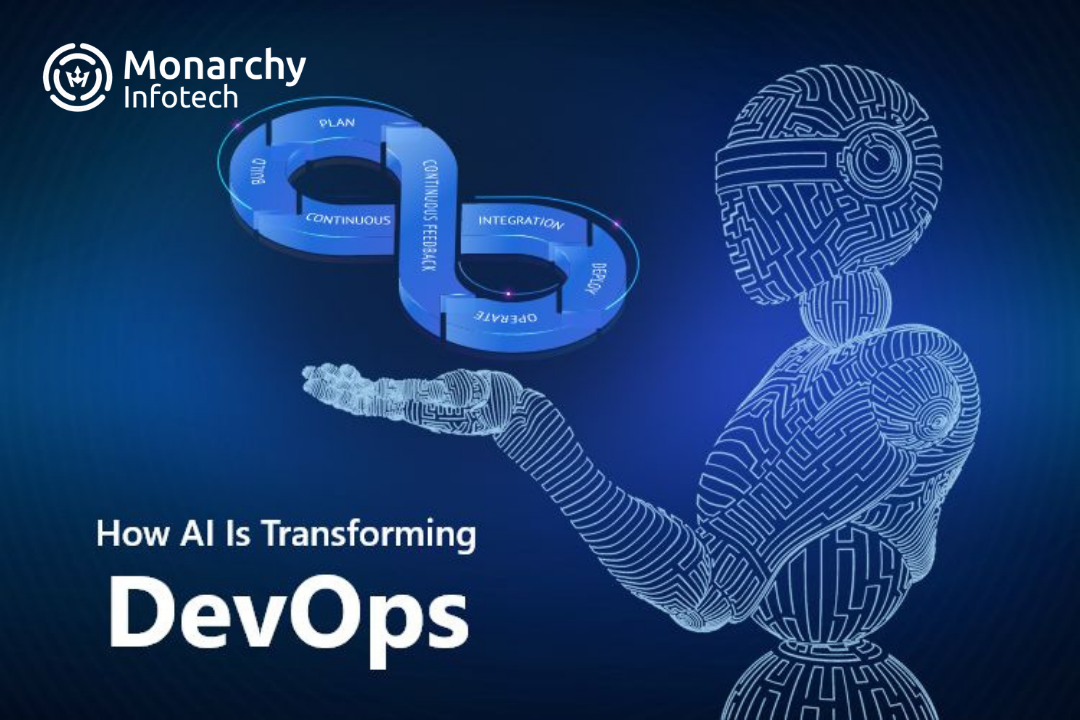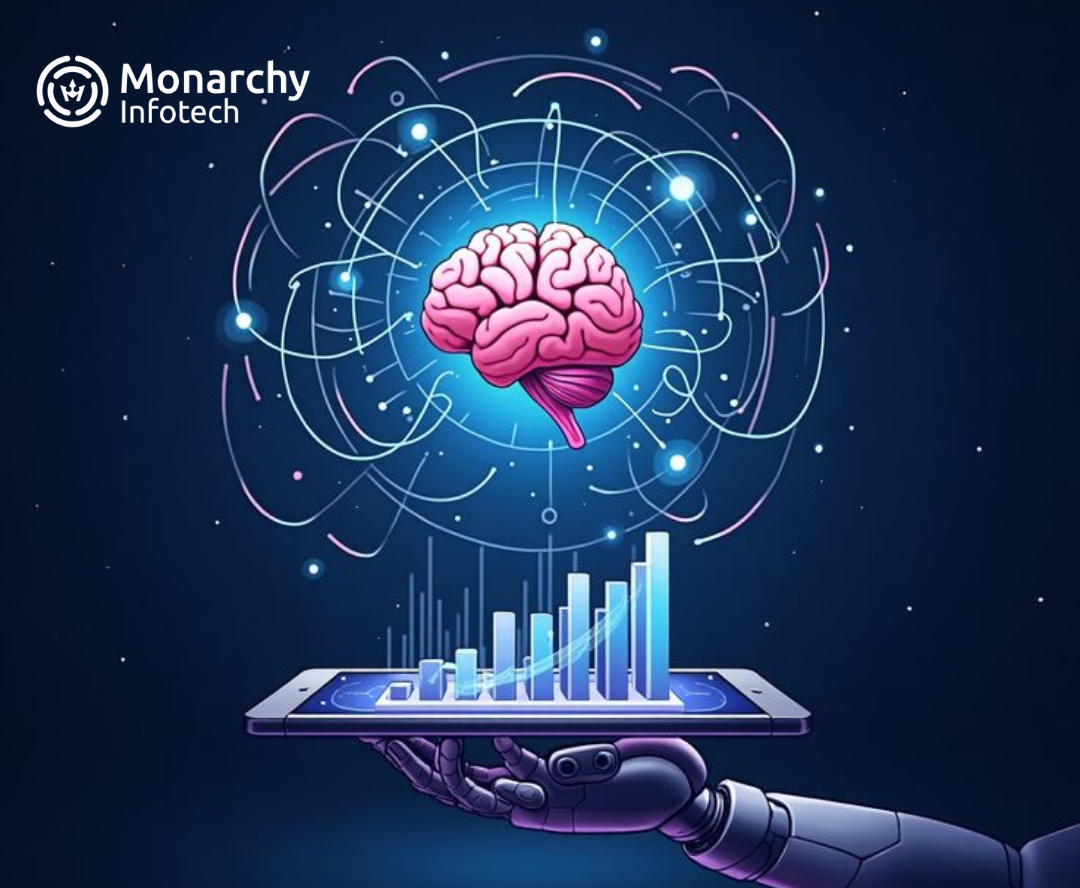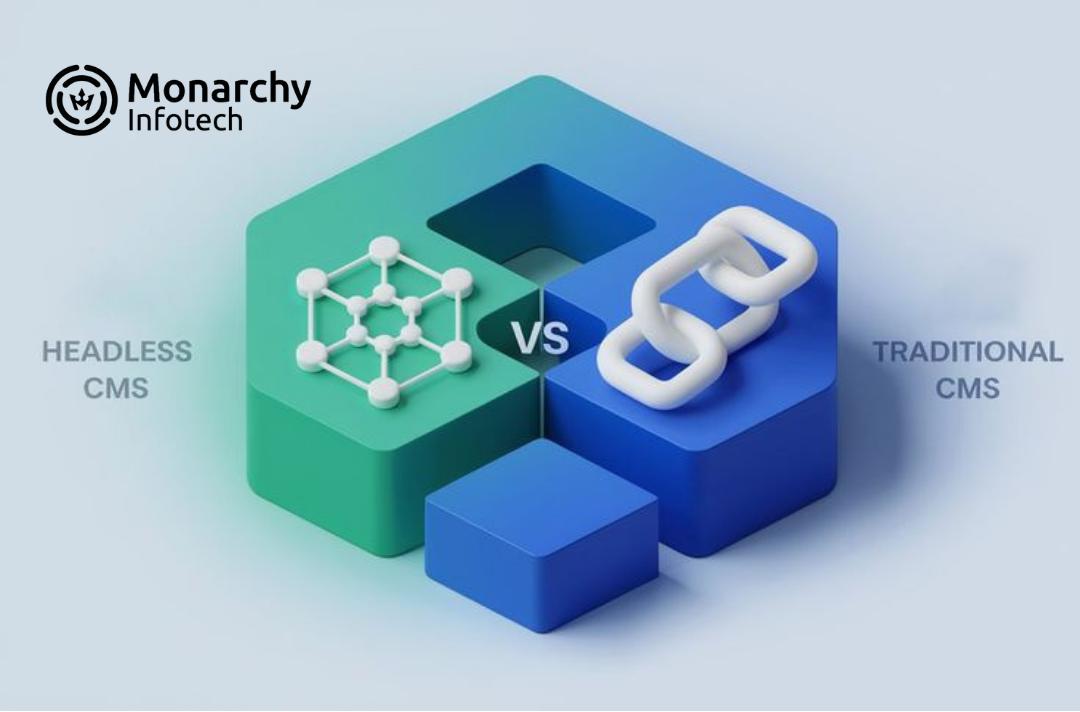The more complicated IT ecosystems get, the more insufficient are classic DevOps measures to comply with speed, scalability, and system stability requirements. Meet AIOps (Artificial Intelligence for IT Operations)—the new IT frontier that utilizes machine learning, big data, and automation to actively manage and optimize infrastructure. This blog covers the move away from DevOps towards AIOps, with an emphasis on how AI is improving incident detection, root cause analysis, and predictive maintenance. Discover why the visionary IT teams are embracing AIOps to deliver wiser, quicker, and more robust operations in 2025 and beyond.

From DevOps to AIOps: The Next Evolution in IT Operations
From DevOps to AIOps: The Next IT Operations Evolution
The IT industry has undergone a significant transformation from manual deployment and siloed teams. With the advent of DevOps, businesses welcomed automation, teamwork, and quicker release cycles. However, as digital systems become increasingly complex and data-intensive, even DevOps becomes ineffective.
Welcome to the age of AIOps (Artificial Intelligence for IT Operations) — the natural extension that combines machine learning and big data analytics with IT operations, allowing teams to identify, diagnose, and fix problems faster and more effectively than ever.
What Is AIOps?
AIOps is the use of artificial intelligence and machine learning to streamline and augment IT operations. It allows systems to:
- Track enormous amounts of data in real-time
- Detect anomalies and patterns proactively
- Automate root cause analysis and remediation
- Improve uptime, performance, and service delivery
AIOps platforms act like a smart assistant for IT teams, filtering noise, predicting incidents, and optimizing system health continuously
Why DevOps Needs an Upgrade
DevOps has revolutionized software development by bridging the gap between development and operations. But with the explosion of:
- Distributed microservices
- Cloud-native environments
- IoT and edge devices
- Real-time application performance data
classic DevOps tools are not able to keep pace with the sheer number and speed of data
AIOps comes to the rescue — injecting intelligence and scale into the DevOps toolchain.
How AIOps Refines DevOps: Key Advantages.
1. Smart Incident Management
AIOps employs machine learning to identify anomalies and anticipate outages before affecting users. It significantly lowers MTTD (Mean Time to Detect) and MTTR (Mean Time to Resolve) through the automation of triage and root cause analysis.
2. Smarter Alerting
Rather than overwhelming IT teams with thousands of alerts, AIOps correlates and filters noise, only providing actionable insights. It eliminates alert fatigue and enables teams to focus on what is relevant.
3. Proactive Problem Prevention
Identifying patterns over time, AIOps foresees performance degradation or impending system failure—enabling teams to respond before users feel a thing.
4. Automated Remediation
Certain AIOps solutions automate the trigger for fixes—such as restarting services, scaling infrastructure, or rolling back code—without manual intervention.
5. Continuous Learning
AIOps systems learn from past experiences and get better over time, enabling faster and more accurate responses in the future.
Real-World Use Cases of AIOps
- IT Monitoring: Automatically identifies and isolates real-time performance bottlenecks
- Root Cause Analysis: Leverages historical information and AI models to identify the root of an incident
- Anomaly Detection: Identifies unusual behavior in apps, networks, or infrastructure
- Automated Actions: Performs self-healing on a set basis according to predefined playbooks
- Log & Event Correlation: Merges data from multiple tools to provide a single pane of glass view
Challenges to Consider When Adopting AIOps
While it is valuable, AIOps adoption is not plug-and-play. Companies should be careful about:
Not even close. AIOps doesn't supplant DevOps—it amplifies it.
- Data Silos: AIOps is based on centralized access to logs, metrics, and events
- Change Management: Staff must be trained in believing and collaborating with smart systems
- Tool Integration: AIOps must fit into your DevOps and ITSM tool stack
- Initial Setup Time: Training ML models and setting up workflows is not a walk in the park
- But with a well-thought-out plan, these obstacles can be avoided—and the ROI can be huge.
Is AIOps Replacing DevOps?
Not even close. AIOps doesn't supplant DevOps—it amplifies it.
Consider AIOps the brain appended to DevOps' brawn. It automates what DevOps teams are already doing but does so smarter, faster, and more at scale.
Together, they bring about a future where IT operations are:
- More proactive than reactive
- More predictive than diagnostic
- More automated than manual
Conclusion: The Future of IT Is Intelligent





